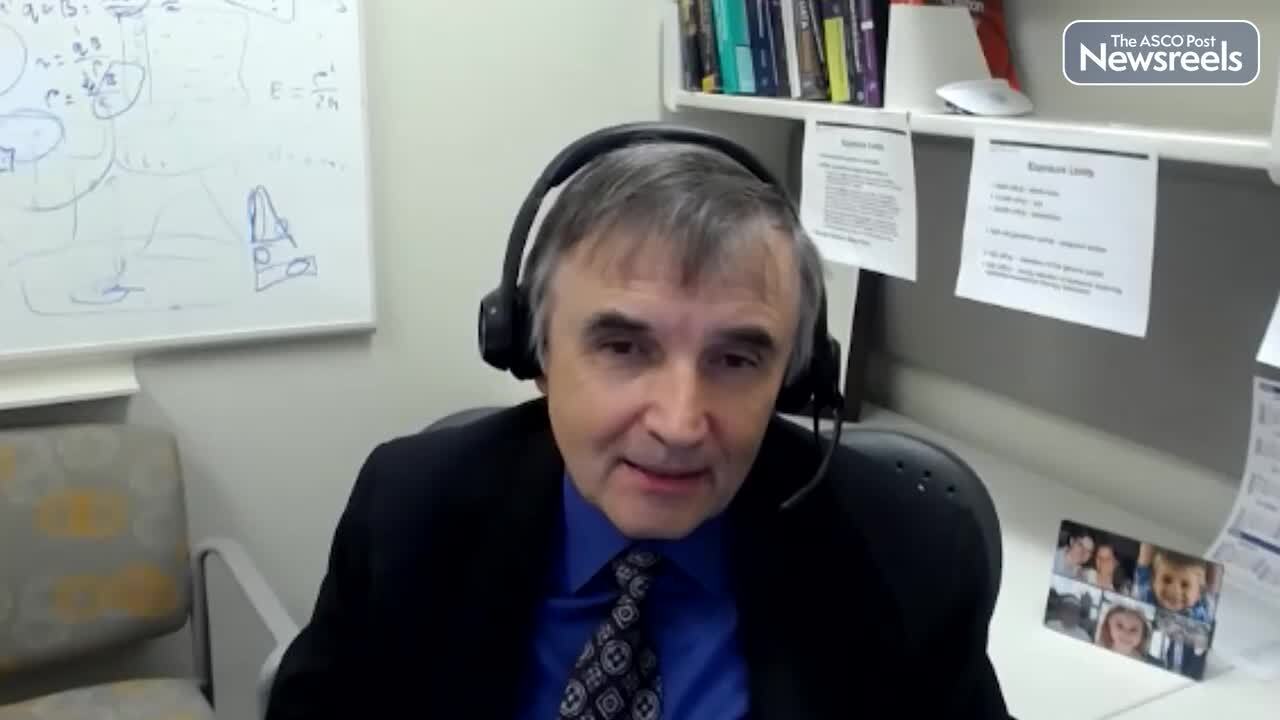Ara Klijian, MD, on Lung Cancer: Operability in Patients With Poor Pulmonary Function
2021 Multidisciplinary Thoracic Cancers Symposium
Ara Klijian, MD, of Scripps Health, discusses findings on the safety of AVATS (awake video-assisted thoracic surgery), a procedure that may benefit select patients, including those whose early non–small cell lung cancer was previously deemed inoperable due to poor pulmonary function. Performed under local sedation, AVATS appeared to improve outcomes, reduce hospital stays, increase patient satisfaction, and lower costs.
The ASCO Post Staff
Mirek Fatyga, PhD, of Mayo Clinic Arizona, discusses his findings on overall survival in patients with locally advanced non–small cell lung cancer who are treated with stereotactic body radiotherapy or conventionally fractionated radiotherapy. He notes that a high dose of > 50 Gy to the right-superior portion of the heart likely affects its conduction system. A low dose of < 5 Gy to the inferior segments of the heart may also cause heart damage and toxicity through blood irradiation.
The ASCO Post Staff
Julia Rotow, MD, of Dana-Farber Cancer Institute, discusses an education session she conducted on mutations and biomarkers in thoracic cancers, including PD-L1, a continuous variable, with the greatest benefit to treatment being associated with very high levels of PD-L1 tissue polypeptide-specific antigen. Dr. Rotow also discusses STK11 mutations, which may be associated with reduced benefit to immune checkpoint inhibitor therapy, though further study is needed.
The ASCO Post Staff
Narjust Duma, MD, of Dana-Farber Cancer Institute, discusses the many factors that lead to poorer outcomes in lower-income and minority patients with advanced non–small cell lung cancer and the urgent need to address these disparities and physician bias. Women of color and other minority patients are less likely to be offered lung cancer screening; participation in clinical trials; referral to palliative and hospice care services; or genome sequencing of their tumors.
The ASCO Post Staff
Pranshu Mohindra, MD, MBBS, of the University of Maryland School of Medicine and the Maryland Proton Treatment Center, discusses the largest series to date reporting outcomes for patients with non–small cell lung cancer who were treated with intensity-modulated proton therapy–based reirradiation. According to Dr. Mohindra, this approach yields meaningful and durable local control, as well as prolonged survival, and is an important tool in the management of a difficult-to-treat disease.
The ASCO Post Staff
Carolyn Presley, MD, of The Ohio State University, discusses the differences between “chemo brain,” cognitive aging, and dementia in patients with thoracic cancer who are in treatment; how to test for impairment; and the interventions that can improve cognitive changes in survivors.





